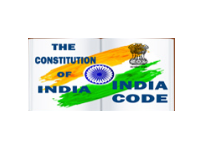National Programme for Civil Services and Capacity Building (NPCSCB)- Mission Karmayogi
Objective
1.1 Civil services are at the centre of all government activities — they are the agents of policymaking and the executive hand that delivers on the ground. The skill sets and capacity of the civil servants play a vital role in service delivery, program implementation and performing core governance functions. Recognising this crucial responsibility, the National Programme for Civil Services Capacity Building (NPCSCB) aims to create a professional, well-trained and future-looking civil service, that is imbued with a shared understanding of India's developmental aspirations, national programs and priorities.
1.2 The focus of NPCSCB is on promoting ease of living and ease of doing business, by considerably enhancing the citizen-government interface. This involves creation of both functional and behavioural competencies among the civil servants.
NPCSCB - Pillars & Philosophy
2.1 NITI Aayog, in its report on India@75, has highlighted the need for reforms in training. The experience gained during the COVID 19 pandemic also brought forth the need for the civil service to be agile, capable of partnering with diverse stakeholders and to be up to date with new competencies. The NPCSCB is carefully crafted to lay the foundation for capacity building for future generations of the civil servants so that they learn from the best practices across the world, while remaining connected to their roots.
2.2 The key philosophy of NPCSCB is to create an ecosystem of competency driven training and Human Resource (HR) management by transitioning from a 'rules-based' system to the 'roles-based' system.
2.3 The National Programme for Civil Services Capacity Building has six key pillars i.e.
a) Policy Framework
b) Institutional Framework
c) Competency Framework
d) Digital Learning Framework iGOT-Karmayogi (Integrated Govemment Online Training Karmayogi Platform)
e) The electronic Human Resource Management (eHRMS) and
f) The Monitoring and Evaluation Framework.
2.4 The NPCSCB will cover all civil servants (including contractual employees)across different ministries, department organisations and agencies of the Union Govemment. The willing state governments will also be enabled to align their capacity building plans on similar lines.
Policy Framework
3.1 A competency-based HR policy requires assignment of right person to the right role at the right time. NPCSCB aims to create a robust policy framework towards implementation of such an HR policy in the Government. The policy framework will also enable adoption of modern technological tools such as a digital platform, artificial Intelligence, machine learning and data analytics for monitoring and evaluation of the entire programme especially quality of the learning content, assessment of user feedback and competency assessment.
3.2 The approach will break silos in capacity development and democratize knowledge on an equitable basis across civil services. Besides delivery of training & capacity building, service matters like confirmation i.e. completion of probation, deployment, work allocation, work assignment, notification of vacancies etc will be integrated with the proposed competency framework.
3.3 Key principles of the proposed policy framework are:
• To complement Physical Capacity Building with an Online Training framework.
• Focus on 'On-Site learning' to complement 'Off-Site learning' whereby the civil servant learns in her job environment and only higher order learning is delivered through training institutions.
• To create an ecosystem of shared training infrastructure including teaching material and personnel.
• To harmonise the functioning of all civil services training institutions (such as Central Training Institutions etc.) and enable them to partner with domestic and global institutions.
• To calibrate all civil service tasks to a Framework of Roles, Activities and Competencies including skills (hereinafter referred to as FRACs)
• To partner with all content creators including in-house sources, as well as the private sector to build a content marketplace on iGOT-Karmayogi.
• To make available to all civil servants, agnostic to their geographical location and their position in the hierarchy, an opportunity to access training content in Hindi, English and other Indian languages.
• To enable the individual learners to follow self-decided as well as mandated learning paths.
• To make Mid-Career Training Programme (MCTP) mandatory for all services including horizontal and combined programs amongst services.
Competency Framework
4.1 The exercise for defining the Framework for Roles, Activities, and Competencies including skills (FRACs) will be carried out by each Ministry/ Department/ Organisation of Union Government and integrated with the iGOT-Karmayogi Platform. FRACs exercise will define the roles, activities and competencies required at each position in the government. Ihereafter, it is envisaged that work-allocation, notifications of vacancies etc. will be done through the iGOT Karmayogi platform following the FRACs model. Further, content appropriate to the FRACs model will be provided by participating organisations on the 70:20:10 rule (an indicative 70% training online, 20% on-the-job and 10% physical).
Digital Learning Framework (iGOT-Karmayogi Platform)
5.1 The online learning platform, iGOT-Karmayogi, has been developed as an integral part of the Digital India stack for capacity building of all government employees. It aims to provide anytime-anywhere-any device learning to train about 2.0 crores users which was hitherto not achievable through traditional measures.
5.2 Content Curation: The platform is envisioned to evolve into a vibrant and world class marketplace for content modelled on FRACs, supported by a robust e-learning content industry. The content can be curated by individual government ministries or organizations in-house or through knowledge partners. Carefully crafted and vetted content from best-in class institutions, universities, private content providers and individual resources will be made available as training modules.
5.3 A Special Purpose Vehicle (SPV) – Karmayogi Bharat in the form of a not-for-profit company has been incorporated in January 2022 as a 100% government owned entity for owning, managing, maintaining and improving the digital / e-learning platform, including the IPR of all software, content, process etc on behalf of Government. A subscription-based revenue model from all stakeholders has been envisaged to partly fund the program. DoP&T will fix and convey the annual subscription fee to all the Ministries and Organisations which will be paid by the Ministry or Department concerned.
e-Human Resource Management System (e-HRMS)
6.1 To facilitate digital working environment in Central Government, an electronic Human Resources Management System (e-HRMS) has been introduced in all the Departments. This will help Government to digitally manage the service matters of officials leading to reduction in transaction time and cost, availability of digital records, dashboards for MIS, real time monitoring of manpower deployment as well as serving as a productivity enhancement tool amongst others. The e-HRMS will be integrated with the iGOT-Karmayogi platform.
Institutional Framework
7.1 The NPSCB will have the following Institutional Framework:
(i) Prime Minister's Public Human Resource Council (hereinafter referred to as 'PMHRC'): A Council comprising of eminent public HR practitioners, thinkers, global thought leaders and representatives of the Indian political leadership under the Chair of the Prime Minister of India, is conceived to be the apex body for driving and providing strategic direction to civil services reforms and capacity building. It will identify areas for policy intervention and approve the National Capacity Building Plan.
(ii) Cabinet Secretariat Coordination Unit: A coordination unit under the Chairmanship of the Cabinet Secretary will monitor the implementation of the NPCSCB. It will align all stakeholders and provide mechanism for overseeing capacity building plans.
(iii) Capacity Building Commission - The Civil Service Capacity Building Commission is at the heart of the NPCSCB. It will coordinate the preparation of annual capacity building plans, monitor and evaluate their implementation and functionally supervise the training institutions (CM's etc.) for the purpose of creation of shared resources ecosystem. The Secretariat of the Commission will be headed by an officer in the grade of Joint (Designated as Secretary to the Commission) to Government of India.
(iv) Special Purpose Vehicle (SPV) – Karmayogi Bharat - A not-for-profit company, under the administrative control of DoPT incorporated as a 100% government owned entity for owning, managing, maintaining and improving the digital assets i.e., iGoT Karmayogi the digital e-learning platform, including the IPR of all software, content, process etc on behalf of Government. The SPV will have the responsibility to create and operationalize the content marketplace and continuously evaluate utilization.
(v) A Programme Management Unit (PMU) under DoP&T to interface with support agencies. It will provide program management and support services to the department for rolling out and managing different aspects of NPCSCB.
7.2 Some important functions of the Capacity Building Commission are :
(i) Coordinate with Departments, Organisations and Agencies of the Government for evolving a harmonious de-siloed approach to improve capacity
(ii) Facilitate preparation of Annual Capacity Building Plans and monitor and report the periodical progress of
(iii) Prepare the Annual HR Report on the health of Civil Services
(iv) Make recommendations on of training and capacity building to Government Training Institutions.
(v) Undertake analysis of data emit from iGOT-Karmayogi pertaining to different aspects of capacity building, content creation, competency mapping, feedback etc.
(vi) Organize the Global Public HR Summit under the guidance of the PMHRC utilising the resources and budget to be provided by DoPT.
(vii) Approve Knowledge Partners for the NPCSCB.
7.3 The primary functions of the Special Purpose Vehicle- Karmayogi Bharat are:
(i) Design, implement, enhance and manage the digital platform and infrastructure
(ii) Create, buy, source internally, curate content and ensure validation of the content
(iii) Manage and deliver proctored assessment services
(iv) Manage governance of telemetry data and make such data/ analysis available to identified authorities
Monitoring and Evaluation framework
8.1 The performance of all users of the iGOT-Karmayogi platform will be monitored and evaluated on Key Performance Indicators (KPIs). This will include the individual learner, the supervisor, the organisation, the peer group, the content provider, the content creator, and the technology service providers etc. A Dashboard and an Annual State of the Civil Services Report will capture the KPIs for all departments, organisations and agencies of the government and document the outcomes of current initiatives against goals (including key KPIs from the iGOT-Karmayogi dashboard) along with the roadmap for future Public HR Management and Capacity Building.
Funding of NPCSCB
9.1 An amount of Rs.510.86 crores is proposed to be spent over a period of 5 years. This includes multilateral assistance to the tune of 47 million dollars (amounting to Rs.350.00 crores approx.).






 कार्मिक एवं प्रशिक्षण विभागDepartment of
कार्मिक एवं प्रशिक्षण विभागDepartment of 













